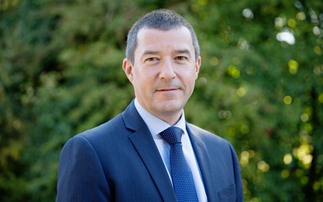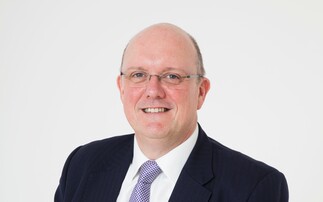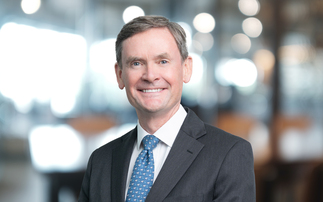Before Kirsty Stone started a career in financial advice she was unaware of the nuances of the field, and growing up she hadn’t even heard of an IFA. Claire Tyrrell speaks to the young adviser about her switch to fixed charging and her career in advice
Although unaware of the advice profession when Stone was younger, The Private Office (TPO) adviser is now a Chartered financial planner with eight years' industry experience and cannot see herself doing anything else.
Stone, 30, fell into financial advice after graduating with a law degree from Bournemouth University and joined an IFA in Somerset, her home county, to pay off her student loan.
"At no point had I ever thought that I was going to be a financial adviser," she explains. "I hadn't had any exposure to it when I was younger. I had to find a job and I joined as an administrator at a local IFA.
"I pretty much stumbled into this career, but I've kept going with it because I just really enjoy it."
Stone progressed to paraplanning at Somerset's PlumpTree Kilby and then moved onto London's Dart Capital, where she was awarded Chartered Institute for Securities & Investment Paraplanner of the Year in 2017.
Stone joined Chartered IFA The Private Office in September 2019 after progressing to Chartered status at Dart Capital, where she also worked as investment manager.
'More in-depth'
She says a major draw of TPO was its fixed fee structure, departing from the percentage-based models other firms she worked with had adopted.
"Our industry doesn't have a good reputation when it comes to fees. People either think we're too expensive or we're not transparent. For us, you don't get much more transparent than saying in pounds and pence what we're going to charge you and do you want to go ahead," she says.
"We've got a fixed structure on our charge, and for me that makes the conversation a lot easier as well. It's more comfortable as an adviser and I think, as a client as well, it's more transparent, so they're more comfortable with it too."
Stone says the process of explaining fixed fees to clients is more in-depth than percentage models but, in her mind, fixed fees better reflect the value of advisers' services.
"If it's percentage basis, there's not much of a conversation with people about fees. It's not until you quantify it down in concise reports it suddenly becomes apparent what that fee is. So it was an adjustment for me, but I feel much more comfortable now, scoping or just telling a client what a fee is going to be because I'm confident that it's fair value," she says.
TPO breaks down its fees according to the service they provide clients, charging on a tiered basis.
"If we're going to review the defined contribution pension, we charge a segment of work, so that's £1,850 to £3,000. Obviously there has to be an element of tapering - if we're reviewing 20 pensions and it's obviously going to cost more than one pension," she says.
"Ultimately, we are bespoke in what we do for clients [and] I look after a huge range of people."
TPO's 35 advisers work with about £1.8bn assets under management for 3,500 clients from offices in Leeds, London and Bath.
Stone says the Covid-19 pandemic was a busier time than ever for TPO's advisers as they worked to reassure clients to stay invested.
"It is an awful situation. I've now lived through a financial crisis, and it's a very big one. So yeah, I think previously I've not had that much exposure," she muses.
"In terms of client responses, it's been really positive - our existing clients that are confident and comfortable that their financial plans are on track. We prepare them for the worst situation when we do any financial planning and forecasting for our clients.
"In the two weeks after we went into lockdown, we probably had more client meetings than I've ever had, because we were doing video conferencing, checking in and updating cash flow plans."
A new normal
Stone, who is normally based in TPO's London offices, says the pandemic may lead to a permanent change in the way advisers deal with clients.
"Clients have been really receptive as well. I think we're definitely going to see a new way of working with a lot of our clients," she says.
"We try and see our clients twice a year minimum or we're available if there's any other ad hoc meetings required, but clients are now actually really open to the idea of doing a virtual meeting, at least one of those meetings a year if they want to."
Stone says she aspires to continue working in a client facing role as an adviser as working with people is what she loves about her job the most.
Her advice to younger people wanting to get into the profession is to find the business with the right fit for them: "There are a lot of firms out there, so just be sure that if you're committing to a firm then it's a firm that has the ability to support you moving forward, and really have the opportunity there. If you want to become an adviser, what's the route to that, and if there's a time horizon or not, because of course, if you're that driven and you need to know what the future might look like," she explains.
"But I really love what I do, so I'm grateful that I kind of stumbled into this career."











